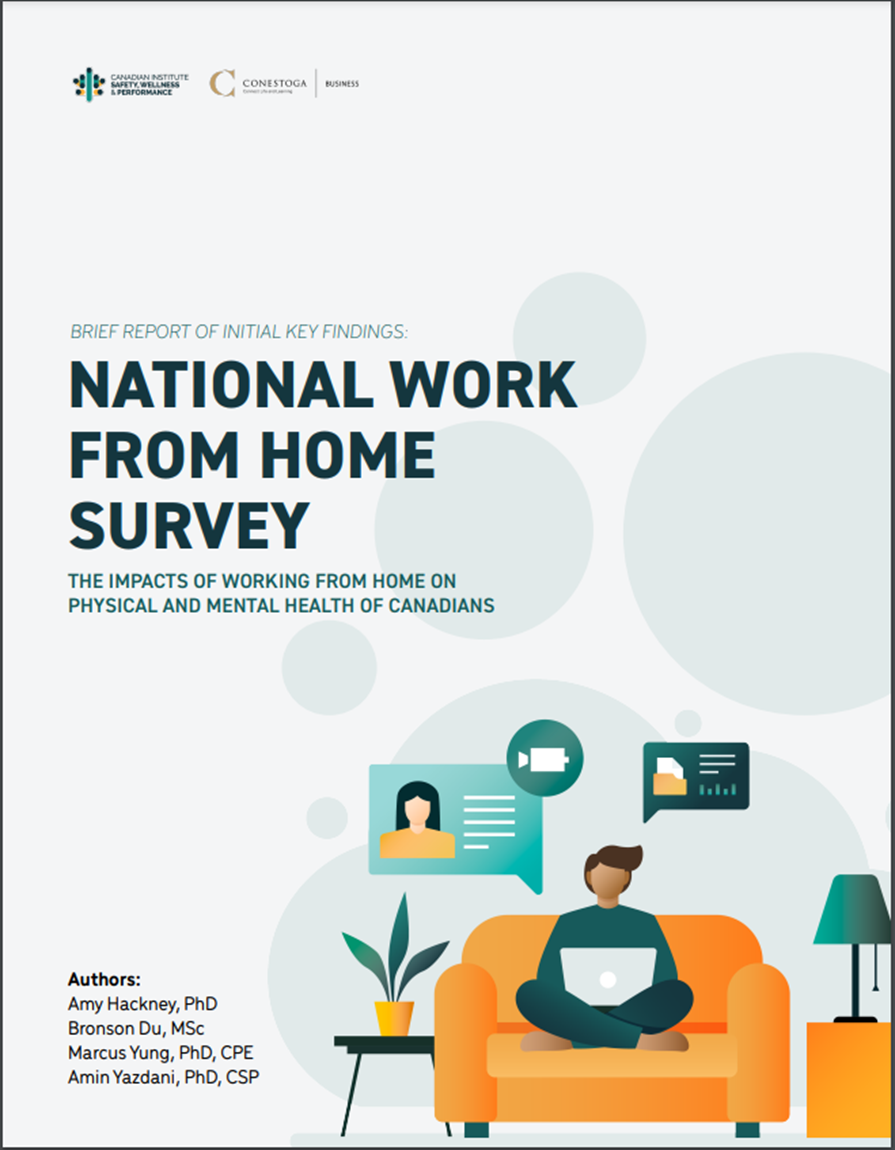Brief report of initial key findings: National work from home survey – The impacts of working from home on physical and mental health of Canadians

On March 11th, 2020 the World Health Organization (WHO) declared COVID-19 a global pandemic. Since this announcement, working from home (WFH) has become a necessary measure to mitigate the potential transmission of COVID-19. Millions of Canadians have had the way they live, work, and interact with their communities suddenly and significantly change. With a peak of 5.4 million Canadians in a WFH arrangement during the pandemic (Statistics Canada, 2021a), a national survey aimed to capture how Canadians are faring, and how WFH has impacted their mental and physical wellbeing.
Led by Conestoga College’s Canadian Institute for Safety, Wellness & Performance (CISWP) and in collaboration with La Trobe University in Australia, we surveyed Canadians across the country between October 27th and December 21st, 2020. During this time frame, there was an average of 5,270 new cases of COVID-19 per day in Canada (Statistics Canada, 2021b). Questions focused on respondents’ mental and physical health, and work-life conflict associated with their WFH experience. At the time of survey completion, over 90% of respondents were working full time hours in a WFH setting.
In the next few sections, we present a preliminary descriptive summary of the initial results. We begin with a demographic overview of our respondents, outline major findings associated with stress and mental health, and highlight the results surrounding physical health. We then present results focused on work-life conflicts and conclude with additional key takeaways. This report includes several infographics to present detailed descriptive analysis of key findings.

